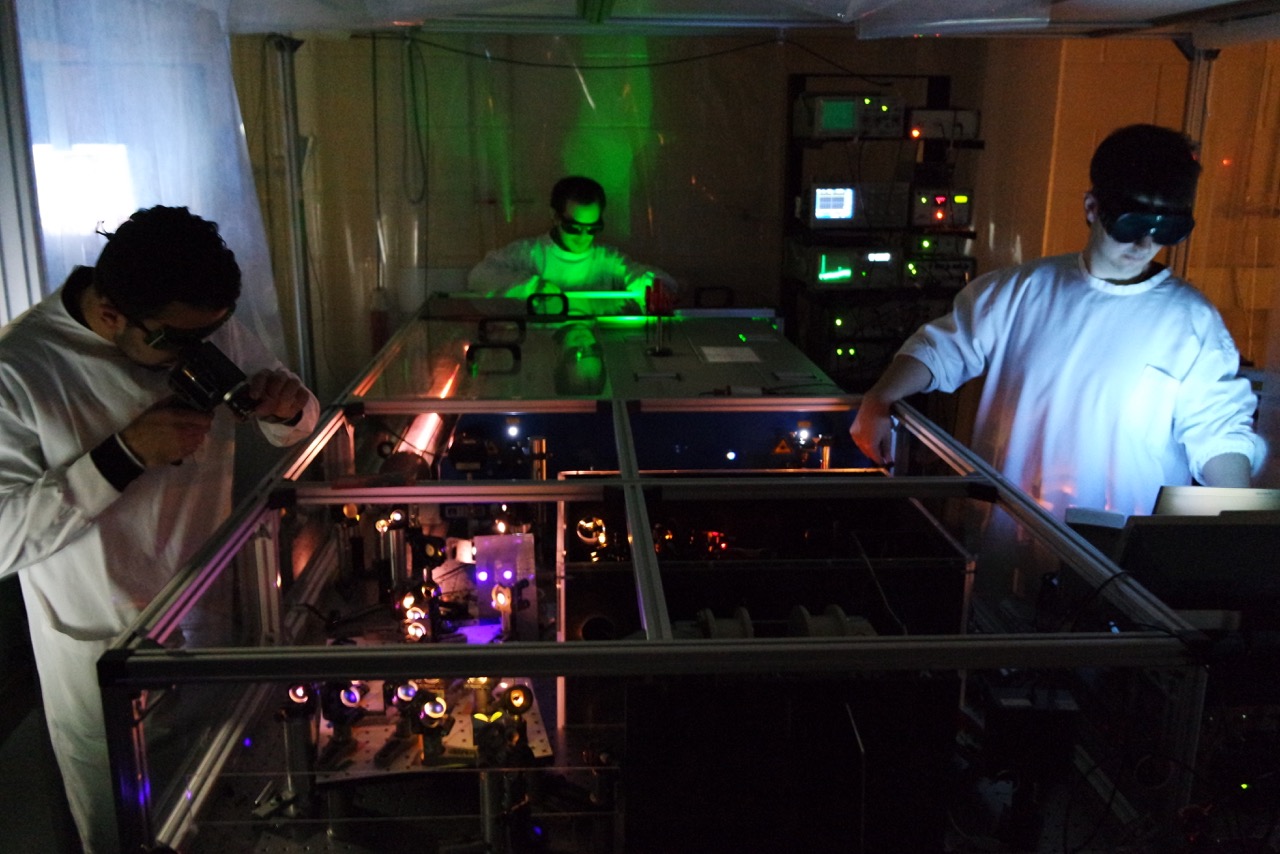FCUP develops the world's fastest ultra-fast laser system

A team of scientists from the Faculty of Science of the University of Porto (FCUP) has developed and built a new ultrafast laser system for the production and observation of magnetic processes at an unprecedented time scale, less than 10 femtoseconds (1 femtosecond = 0.000,000,000,000,001 seconds), setting a new world record for the speed at which the magnetization of materials can be modified directly with laser light. The new system and the results obtained are expected to have an impact on the development of new magneto-optical materials and technologies for applications in biomedical sensors and for high-speed information recording and reading, and were worthy of publication in the prestigious journal Scientific Reports, an open-access publication from the Nature group.

 Helder Crespo, professor at the University of Porto, and David Schmool, former professor at the University of Porto, currently director of research at CNRS (Centre National de la Recherche Scientifique, France) and professor at the University of Versailles, led the team of scientists from Department of Physics and Astronomy, FCUP (Ultrafast Lasers and Magnetodynamic Spectroscopy Group at IFIMUP-IN – Institute of Materials Physics at the University of Porto), which achieved these results through strategic scientific planning, involving three projects supported by FCT.
Helder Crespo, professor at the University of Porto, and David Schmool, former professor at the University of Porto, currently director of research at CNRS (Centre National de la Recherche Scientifique, France) and professor at the University of Versailles, led the team of scientists from Department of Physics and Astronomy, FCUP (Ultrafast Lasers and Magnetodynamic Spectroscopy Group at IFIMUP-IN – Institute of Materials Physics at the University of Porto), which achieved these results through strategic scientific planning, involving three projects supported by FCT.
In Helder Crespo's opinion, "the support of the FCT was crucial for the development of all scientific activity, from the acquisition of components and instruments for the construction of the various systems to the advanced training of human resources," with five doctoral theses having been developed within the scope of these projects.
These advances are directly related to a new technology for compressing and measuring ultrashort laser pulses, called dispersion-scan (or d-scan), invented and patented at the University of Porto in collaboration with Lund University. This revolutionary technique is also the basis for a new high-tech company based in Porto, Sphere Ultrafast Photonics (a spin-off from the University of Porto), which manufactures and distributes this exclusive technology in the global scientific market.
Today, it is possible to store large amounts of information on magnetic digital media, which must be accompanied by a corresponding increase in writing and reading speeds. Otherwise, the system in question becomes slow in relation to its capacity. The study and understanding of the fundamental phenomena behind magnetism is a very important challenge in this cutting-edge technology, which seeks to discover the maximum speed at which we can read and write bits on a magnetic material, and how we can do so.